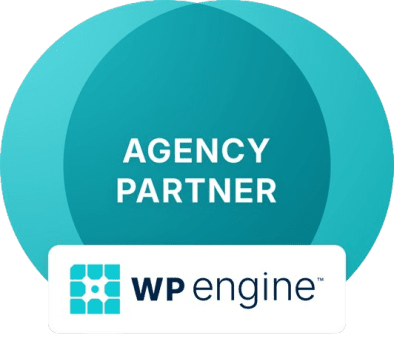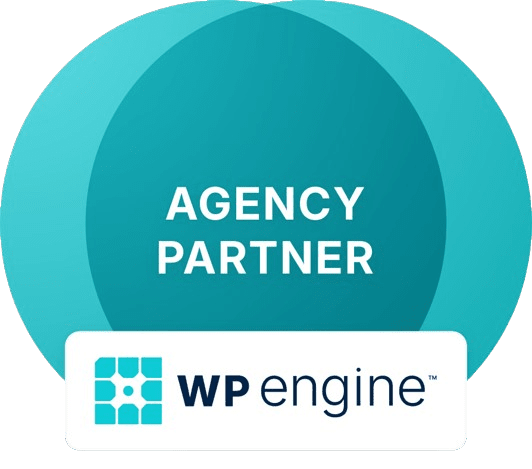What Is PPC Management?
PPC management is a comprehensive process that involves overseeing and optimising pay-per-click (PPC) advertising campaigns. It encompasses monitoring campaign performance, analysing data, and implementing strategies to enhance results. Effective PPC monitoring ensures that campaigns are targeted, efficient, and cost-effective.
Managing a PPC account involves a range of activities, including keyword research, ad creation, campaign setup, bid management, budget allocation, performance tracking, data analysis, and ongoing optimisation. It requires a deep understanding of PPC advertising platforms, audience targeting, and industry best practices.
Effective PPC monitoring aims to maximise the return on investment (ROI) from PPC campaigns by delivering relevant ads to the right audience, generating high-quality leads or sales, and staying competitive in the market. It involves making data-driven decisions based on campaign performance metrics and constantly refining strategies to improve results.
The management part is crucial for businesses that rely on PPC advertising to drive traffic, leads, and sales. It helps align campaigns with marketing objectives, ensures efficient budget allocation, and adapts to market changes and platform updates. By leveraging PPC monitoring expertise, businesses can achieve better campaign performance, increased conversions, and a higher return on their advertising investments.

Difference Between PPC Marketing And PPC Management
Both are distinct but related concepts. PPC marketing involves creating and launching pay-per-click (PPC) advertising campaigns. It focuses on setting up campaigns, creating ad copy, selecting keywords, and targeting audiences across various platforms.
In contrast, PPC monitoring is a more comprehensive and ongoing process. It involves overseeing and optimising PPC campaigns to improve performance and maximise return on investment (ROI). PPC monitoring encompasses monitoring campaign metrics, analysing data, and implementing strategies to enhance results.
PPC marketing sets the foundation for PPC campaigns, while PPC monitoring ensures the campaigns achieve their full potential. Monitoring PPC involves continuously refining campaigns based on performance data, adjusting bids, and budgets, and targeting to improve efficiency and cost-effectiveness.
Effective PPC monitoring requires expertise in data analysis, audience targeting, platform knowledge, and industry best practices. It aims to maximise the impact of PPC campaigns by delivering relevant ads to the right audience, generating high-quality leads or sales, and staying competitive in the market.
In PPC marketing, campaigns are created and launched, while PPC monitoring takes a holistic approach to managing and optimising these campaigns for better performance and increased return on advertising investments.
Why Is PPC Management Important?
Managing PPC accounts plays a vital role in helping businesses maximise their return on investment (ROI) from PPC advertising. Effective PPC monitoring ensures that campaigns reach the right audience, deliver relevant ads, and generate high-quality leads or sales. It enables businesses to stay competitive, adapt to market changes, and achieve their desired outcomes.
The importance of PPC monitoring cannot be overstated. It helps align campaigns with marketing objectives, ensuring that advertising efforts are focused and targeted. Continuous optimisation based on performance data allows for efficient budget allocation, targeting the most promising keywords and audiences.
PPC monitoring also helps businesses stay ahead of the competition. By leveraging industry best practices and platform updates, campaigns can remain competitive and effective. Adapting to market changes and audience preferences becomes easier with a dedicated PPC monitoring strategy.
In addition, PPC monitoring helps businesses achieve their desired outcomes, whether it’s driving more qualified traffic, increasing conversions, or generating revenue. By optimising campaigns, PPC managers can identify and capitalise on growth opportunities, maximising the impact of advertising investments.
Pay-per-click management is essential for businesses that rely on PPC advertising to drive results. It helps align campaigns with objectives, ensure efficient budget allocation, stay competitive, adapt to changes, and ultimately achieve desired outcomes, such as increased leads, sales, or revenue.
What Does A PPC Manager Do?
A PPC manager is a professional responsible for overseeing the planning, execution, and optimisation of PPC campaigns across various advertising platforms. Their duties encompass a wide range of activities, such as conducting keyword research, crafting compelling ad copy, setting up campaigns, managing budgets, analysing performance data, and making strategic adjustments to improve campaign results.
A PPC manager acts as a bridge between marketing goals and successful PPC execution. They work closely with marketing teams to understand campaign objectives and align PPC strategies accordingly. Their expertise lies in identifying the right keywords, creating relevant ad copy, and targeting the appropriate audiences to drive quality traffic and conversions.
PPC managers are responsible for managing campaign budgets and ensuring efficient allocation of advertising spend across different platforms and ad groups. They analyse performance data, such as click-through rates, conversion rates, and cost-per-acquisition, to identify areas for improvement and make data-driven decisions.
PPC managers continuously optimise campaigns by refining targeting options, adjusting bids, testing ad variations, and implementing strategies to improve ad relevance and quality scores. They stay up-to-date with platform changes, industry trends, and best practices to ensure campaigns remain competitive and effective.
In summary, a PPC manager’s role is multifaceted. They are responsible for planning, executing, and optimising PPC campaigns to achieve marketing goals and maximise return on investment. Their expertise in keyword research, ad creation, budget management, data analysis, and strategic decision-making is crucial for successful PPC execution.
Why You Need A PPC Management Strategy To Increase Revenue
Having a comprehensive strategy is crucial for increasing revenue through PPC campaigns. A well-defined strategy guides decision-making ensures consistent optimisation and aligns campaigns with business objectives. It helps identify high-performing keywords, target the right audience, and allocate budgets effectively, ultimately driving more qualified traffic and higher conversion rates.
A PPC monitoring strategy provides a roadmap for achieving revenue growth through PPC advertising. It outlines goals, target audiences, budget allocation, and key performance indicators (KPIs) to measure success. A strategy enables PPC managers to make data-driven decisions, optimise campaigns consistently, and align efforts with overall business objectives.
By identifying high-performing keywords and targeting the most relevant audiences, a PPC monitoring strategy helps drive qualified traffic and increase conversion rates. Effective budget allocation across ad groups and platforms ensures that advertising spending is directed towards the most promising opportunities.
A comprehensive strategy to manage PPC also encourages continuous improvement through regular monitoring, analysis, and optimisation. It helps PPC managers adapt to changes in the market, audience preferences, and platform updates, ensuring that campaigns remain competitive and effective.
A well-defined PPC monitoring strategy is essential for increasing revenue through PPC campaigns. It guides decision-making, ensures consistent optimisation, aligns campaigns with business objectives, and ultimately drives more qualified traffic and higher conversion rates, leading to increased revenue.

PPC Management Responsibilities
PPC monitoring encompasses a wide range of responsibilities to ensure the success of PPC campaigns. These responsibilities include keyword research, ad creation, campaign setup, bid management, budget allocation, performance tracking, data analysis, and ongoing optimisation. PPC managers must also stay up-to-date with platform changes, industry trends, and best practices to ensure campaigns remain competitive and effective.
Keyword research is crucial for identifying the right search terms to target and ensuring ads are shown to relevant audiences. PPC managers create compelling ad copy that grabs attention and drives clicks. They set up campaigns across various platforms, configuring ad groups, targeting options, and bids to align with campaign objectives.
Effective bid management and budget allocation are essential to maximise the impact of advertising spend. PPC managers track campaign performance metrics, such as click-through rates, conversion rates, and cost-per-acquisition, to analyse data and identify areas for improvement.
PPC managers continuously optimise campaigns by refining targeting options, adjusting bids, testing ad variations, and implementing strategies to improve ad relevance and quality scores. They stay informed about platform changes, industry trends, and best practices to adapt campaigns accordingly and maintain a competitive edge.
PPC Management Strategies To Increase Revenue
Effective PPC monitoring strategies to increase revenue include targeting high-intent keywords, using audience targeting, optimising ad copy and landing pages, implementing A/B testing, leveraging automated bid strategies, and continuously refining campaigns based on performance data. Additionally, regularly expanding campaigns to new platforms and ad formats can help reach new audiences and drive more revenue.
Targeting high-intent keywords, such as those indicating a strong buying intent, can attract more qualified traffic and increase conversion rates. Using audience targeting options, like demographics, interests, and behaviours, ensures ads are shown to the most relevant segments, improving the chances of conversions.
Optimising ad copy and landing pages to align with audience needs and search intent can enhance relevance and click-through rates. Implementing A/B testing allows PPC managers to test different ad variations and identify high-performing elements.
Leveraging automated bid strategies, such as target cost-per-acquisition (CPA) or target return on ad spend (ROAS), can help maximise conversions while maintaining advertising spend within desired limits. Continuously refining campaigns based on performance data ensures that strategies evolve and adapt to changing conditions.
Expanding campaigns to new platforms and ad formats, like social media advertising or video ads, can help reach new audiences and drive additional revenue streams.
Can You Manage Your PPC Campaigns?
While it is possible to manage your own PPC campaigns, it can be time-consuming and challenging, especially for businesses with limited resources or experience. Working with a dedicated agency or professional can provide access to expertise, tools, and industry knowledge, ultimately leading to more efficient and effective campaigns.
Managing PPC campaigns requires a significant investment of time and effort to stay up-to-date with platform changes, industry best practices, and data analysis techniques. Businesses with limited resources or experience may struggle to manage campaigns effectively, leading to suboptimal results and wasted advertising spending.
On the other hand, partnering with a dedicated agency or professional offers several advantages. They bring extensive expertise in keyword research, ad creation, audience targeting, bid management, and campaign optimisation. With access to advanced tools and industry knowledge, they can manage campaigns more efficiently and effectively.
Agencies that manage PPC have experience and resources to analyse campaign data, identify opportunities for improvement, and implement strategies that drive better results. They can leverage their industry knowledge to stay ahead of the competition and adapt to changes in the market and platform updates.
While self-managing PPC campaigns is possible, working with a dedicated PPC monitoring partner can provide a significant advantage, leading to more efficient campaigns, better performance, and ultimately, increased return on investment.
What Does PPC Management Include?
Managing PPC involves a range of activities, including
- Google PPC Network
- Google Local Service Ads
- Campaign Strategy
- Detailed Keyword Research
- Website Industry Analysis
- Ad copies
- Keywords Report Used In The Ads
- GA 4 Data
- Rule-Based Bid Setup.
How Much Does PPC Management Cost?
Managing PPC can vary depending on the agency or professional you work with, the scope of services, and the complexity of your campaigns. Many PPC monitoring agencies charge £1250 to £3500 or a per cent of ad spend (typically 15-20%), while others may offer project-based or retainer pricing models if the Ad spend limit is more than £50,000. It is essential to evaluate the expertise, track record, and value proposition of potential PPC monitoring partners to determine a fair and competitive price.
Conclusion
To manage a PPC account is a critical component of successful PPC advertising campaigns. It involves a range of responsibilities, including keyword research, ad creation, campaign setup, bid management, budget allocation, performance tracking, data analysis, and ongoing optimisation. By implementing effective PPC monitoring strategies, such as targeting high-intent keywords, utilising audience targeting, optimising ad copy and landing pages, implementing A/B testing, leveraging automated bid strategies, and continuously refining campaigns based on performance data, businesses can increase revenue through PPC campaigns.
While it is possible to manage your own PPC campaigns, working with dedicated agencies that manage PPC or professionals can provide access to expertise, tools, and industry knowledge, ultimately leading to more efficient and effective campaigns. PPC monitoring requires a significant investment of time and effort to stay up-to-date with platform changes, industry best practices, and data analysis techniques, making it challenging for businesses with limited resources or experience to manage campaigns effectively.
Our PPC management services can help businesses achieve their PPC advertising goals. With a team of experienced PPC professionals, Reposition offers comprehensive services to manage your PPC accounts, including keyword research, ad creation, campaign setup, bid management, budget allocation, performance tracking, data analysis, and ongoing optimisation.
Reposition’s experts stay up-to-date with the latest platform changes, industry trends, and best practices, ensuring that campaigns remain competitive and effective. By leveraging advanced tools and industry knowledge, Reposition can manage campaigns more efficiently and effectively, leading to better performance and increased return on investment.
Partnering with Reposition can provide businesses with a significant advantage in the competitive world of PPC advertising. Reposition’s expertise, resources, and dedication to driving results make them an ideal choice for businesses seeking to maximise their PPC advertising efforts and increase revenue.

 Organic
Organic  Digital Advertising
Digital Advertising  Resources
Resources  Content Marketing
Content Marketing  Resources
Resources  Who We Are
Who We Are 




